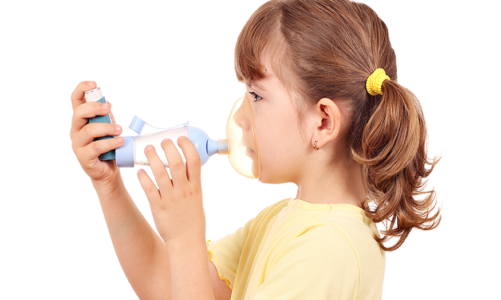Menstrual pain is a regular occurrence that one has to endure during the menstrual cycle, commonly referred to as dysmenorrhea. This is mainly expressed in the form of cramps caused by the contractions of the uterus when it is expelling the lining, which is very painful for most women. These cramps are most frequently triggered by hormonal shifts and specifically too many prostaglandins, and the common symptoms may include throbbing pain, nausea, fatigue, and more. Although some may experience slight discomfort in the form of cramps, severe pain during menstruation can be incapacitating, consequently altering everyday functioning. Understanding the cause of period pain could enable concerned individuals to make informed decisions about the appropriate ways to manage the discomfort, such as choosing the most effective medicine for period cramps. Exploring other ways of attaining better period health, such as natural or lifestyle changes, can also be beneficial.
1. Commonly used nonprescription drugs for instant relief
Non-prescription drugs are what most individuals use to treat period cramps because they are easily accessible. Ibuprofen and naproxen are NSAIDs or some of the best medicines for period cramps because they help decrease prostaglandin activity and therefore reduce pain and inflammation. Aim at taking these medications with food or as prescribed in the package information to enhance the safe management of pains during your cycle.
2. What prescription options are available for severe period cramps?
A healthcare provider may recommend stronger prescriptions if over-the-counter medicines don’t offer enough relief. One possibility is to increase the dose of the NSAID or take hormonal drugs like birth control pills to control or block ovulation, and control or block hormone levels and thus period pain. If you can, a prescription for whichever medicine is best for you can be the best medicine for period cramps. If you are suffering from serious, repeated cramps, other solutions are hormonal IUDs (intrauterine devices). Contraceptives with long-term effects release hormones locally to reduce pain and bleeding.
3. Herbal remedies and natural remedies
If you’re after a natural way to manage period pain some herbal remedies and diet changes can help. Ginger and turmeric are popular choices because they have anti-inflammatory properties, warm herbal teas such as chamomile or peppermint can be soothing and muscle relaxing as well. Supplements such as Omega 3 fatty acids, magnesium, vitamin B1 and other supplements seem to have the potential to reduce menstrual cramps. You can incorporate these into your daily routine and may find relief. However, if symptoms persist or worsen, especially if underlying conditions are present, it is important to use natural treatments carefully and to visit your healthcare professional.
4. Heat therapy as part of reducing pain
This is an old folk remedy for period cramps, it’s called heat therapy. A heating pad, hot water bottle or a warm towel can also warm up your lower abdomen and thus relax uterine muscles and increase blood flow. Similar results are also produced by warm baths which are relaxing for the body. Research shows that heat therapy may be just as effective at treating menstrual pain as some medications. For people who need mobile relief during the day, continuous heat wraps are a convenient option that can be worn discreetly for ease and the ability to use throughout the day makes this form of therapy accessible and practical to decrease menstrual discomfort.
5. Soft cotton pads for period comfort benefits
Managing the period is not only about relieving the pain, correct period products can help you feel more comfortable. For sensitive skin folks, soft cotton pads for periods are highly recommended as they reduce irritation and breathe well better than synthetic ones. Especially suitable for long-term use as they won’t be associated with rashes or allergic reactions. By opting for soft, organic cotton pads you also minimize exposure to synthetic chemicals, dyes, and fragrances which helps improve vaginal health and comfort. The selection of period products is very important in case of a more comfortable and hygienic experience during the period.
6. Preventing and managing period pain with lifestyle changes
Lifestyle changes can help reduce or control period cramps. Starting yoga, swimming, or brisk walking practice improves the circulation of blood and also increases the level of endorphins to reduce menstrual pain. A balanced diet without processed foods, sugar and caffeine and with foods that are anti-inflammatory like fruits, vegetables and whole grains, will also ease the symptoms. Staying hydrated and a regular sleep schedule are equally as important. Also stress management techniques, like meditation, mindfulness & deep breathing exercises, are proven to help balance hormones & therefore reduce discomfort during periods.
7. What results are considered severe and how are they treated?
Most people get period cramps, but if the pain continues or is severe and interferes with everyday tasks it should not be ignored. The appearance of cramps worsening over time together with other scary symptoms such as heavy bleeding or pelvic pain is a sign that the doctor should be called. For example, in women, endometriosis, adenomyosis, pelvic inflammatory disease (PID), and uterine fibroids among other things can lead to debilitating pain in a woman during her period. On this basis, it’s possible for a healthcare provider to perform a thorough evaluation and can then make recommendations for appropriate treatment and the best drug for period cramps, offering a more personalized way to handle your symptoms and live the best life possible.
Managing period cramps is very much about many people tackling the issue from multiple aspects such as using over-the-counter drugs, natural remedies and adopting heat therapy for instance. OTC pain relievers (NSAIDs available over the counter) work to reduce inflammation and relieve pain. Furthermore, natural relief methods, like herbal teas, magnesium supplements or essential oils can provide soothing effects. Overall well-being and reducing the intensity of cramps over time can be aided by lifestyle changes: a balanced diet rich in anti-inflammatory foods, regular exercise and adequate hydration. Instead of being in the dark, let’s explore these options and figure out what truly works for you to achieve meaningful relief and more control over your menstrual health. Finally, seeking medical advice if needed and selecting appropriate products like soft cotton pads for periods, which lessen irritation and provide comfort, can improve your experience. This approach allows you to actively treat period pain while leading a more comfortable and active life throughout your menstrual cycle and, more importantly, provides a sense of control over your health.




